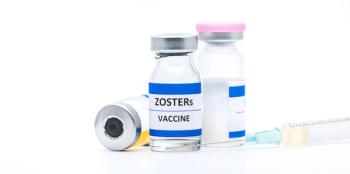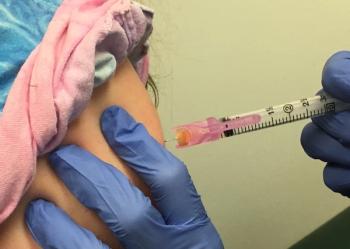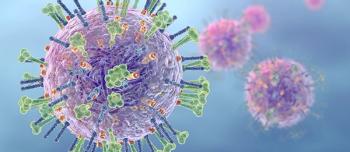
Pharmacy Times® interviewed Fred Peruggia, the head of marketing for respiratory and biologics vaccines at AstraZeneca, on the company’s production and distribution of an intranasal flu vaccine for this flu season.

Pharmacy Times® interviewed Fred Peruggia, the head of marketing for respiratory and biologics vaccines at AstraZeneca, on the company’s production and distribution of an intranasal flu vaccine for this flu season.

In a statement, CEO B. Douglas Hoey emphasized the important role pharmacists will play in distributing the vaccine once available.

Despite some challenges, these programs increase rates and follow-up doses and improve patient communication.

Room for improvement remains, based on 3 factors identified by WHO: complacency, confidence, and convenience.

Each state is responsible for determining the legality of a statute enacted to protect public health and safety.

Despite the looming uncertainty of whether children will return to the classroom or remain educated at home, it is still important to remind parents that they should confirm their children are up-to-date on their vaccinations.

The American Society of Health-System Pharmacists has issued a list of best practices to ensure an equitable distribution of the vaccine.

Currently, a total of 2612 vaccines are being investigated for a number of infectious diseases, including Zika, Ebola, Lassa, Nipah, Middle East respiratory syndrome coronavirus (MERS-CoV), HIV, and coronavirus disease 2019 (COVID-19).

Pharmacists have become widely accepted as immunization advocates, educators, and administrators, and an increasing proportion of influenza vaccines are being administered in community pharmacies nationwide.

Counseling pearls and considerations for the shingles vaccine, such as navigating insurance coverage, managing adverse events, and handling a missed dose in the series, are discussed.

At the Advisory Committee on Immunization Practices' June 2020 meeting, the agenda included discussions of the meningococcal vaccine, influenza vaccine, and coronavirus disease 2019 (COVID- 19).

The COVID-19 pandemic serves as an important reminder of basic recommendations for ensuring health and wellness and protecting oneself against communicable disease transmission.

A table showing recommended immunization schedules for child and adolescent patients.

Two tables show recommended immunization schedules for adults.

The 2020 virtual Directions in Pharmacy® conference provided a comprehensive overview of influenza, including identifying at-risk patients and providing interventions to address vaccination misconceptions.

Moderna will manufacture doses of its experimental coronavirus disease 2019 vaccine candidate as clinical trials are ongoing to expedite the production process.

A study showed that pharmacists in the state of Wisconsin are most likely to administer zoster and influenza vaccines to customers.

This Pharmacy Times® Webcast discusses a number of topics pertaining to the pharmacists’ role in immunization practices, including the precautions and safety equipment necessary amidst the COVID-19 pandemic, pharmacy automation and operations, and best practices to navigate patient care.

The American Cancer Society is renewing efforts to increase HPV immunization as COVID-19 threatens to slow cancer prevention progress.

An expert panel of world-renowned professionals will discuss the latest details on the rapid advances in vaccine development and what they mean to clinicians on the front line.

Steven C. Anderson, FASAE, CAE, IOM, president and CEO of the National Association of Chain Drug Stores, has been invited to join the office of Health and Human Services’ new COVID-19 Vaccine Consultation Panel.

Two mRNA- based vaccine candidates are currently in development by Pfizer and BioNTech.

The human papillomavirus infection (HPV) vaccine should be administered in 2 doses for children between 9 and 12 years of age, according to updated guidelines from the American Cancer Society (ACS).

Pharmacists must be able to identify populations that are at high risk for influenza complications.

Pharmacy Times® interviewed Samir Balile, PharmD, on the safety measures Giant pharmacies are taking to protect patients and staff members upon reopening their doors, as well as the importance of the flu vaccine during COVID-19.